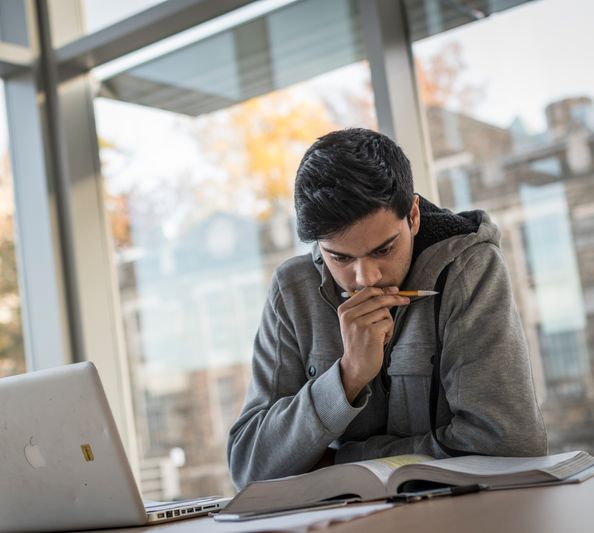In response to the difficulties and uncertainties created by the COVID-19 pandemic, Lehigh University’s P.C. Rossin College of Engineering and Applied Science is temporarily waiving application fees for its graduate studies programs in engineering.
The change is effective immediately (through mid-August) and applies to new applicants (domestic and international) to master’s and doctoral programs across the college’s eight departments for 2020 summer or fall enrollment. As previously announced, all Lehigh courses offered during the Summer 2020 term will be delivered via remote instruction.
“This unprecedented health crisis drives home the vital role highly trained engineers and scientists play in solving the complex and interconnected problems of our times,” says Stephen P. DeWeerth, professor and dean of the Rossin College. “We want to remove barriers and encourage students considering graduate school to advance their career or engage in impactful research to take that next step.”
The Rossin College offers multidisciplinary graduate programs—across more than 20 fields of study—that reflect Lehigh’s legacy of excellence in engineering research and scholarship. Students in both the research-based and professional tracks benefit from a wealth of expertise and facilities that are known for discovery and innovation in key facets of industry and society.
To provide further flexibility for prospective master’s and PhD students, applications are being accepted on a rolling basis. GRE requirements have been waived all domestic students as well as international students currently enrolled in undergraduate programs in the U.S. Interested students are encouraged to email Brianne Lisk, manager of the Rossin College’s graduate programs, or contact departmental graduate coordinators with questions about deadlines and testing requirements.
“I am continually amazed by the dedication and resourcefulness of our engineering graduate students as they push forward during these challenging times,” says DeWeerth. “As a college, we want to make sure the doors are open to the next generation of master’s and PhD candidates. Now, more than ever, the world needs leaders in cutting-edge science and engineering fields to make discoveries and push boundaries for the greater good.”
For more information about graduate programs, visit the Rossin College’s website.
About the P.C. Rossin College of Engineering and Applied Science
The P.C. Rossin College of Engineering and Applied Science at Lehigh University enjoys a rich heritage and reputation for academic excellence, and is considered one of the most prestigious engineering schools in the nation. With a long track record of ingenuity and success, Lehigh engineers make things happen: pioneers of discovery whose entrepreneurial spirit gives rise to ideas and innovations that transform our country and our world. Our faculty share a passionate commitment to teaching, mentoring, and creating groundbreaking educational and research programs; combined with our state-of-the-art learning and research facilities, this forms the basis of a unique and dynamic academic environment. Learn more at engineering.lehigh.edu.
About Lehigh University
Founded in 1865, Lehigh University is located in Bethlehem, Pennsylvania, 85 miles west of New York City and 70 miles north of Philadelphia. The university consists of four colleges—business, education, engineering, and health—on three contiguous campuses. Lehigh is private, co-educational, and non-denominational, serving approximately 5,200 undergraduates and 1,800 graduate students from all over the U.S. and around the world.
At Lehigh today, engineering students are campus leaders in nearly every aspect of student life, ready to succeed generations of Lehigh engineers who have earned renown for their contributions to engineering as well as associated fields such as business, law, medicine and education.

